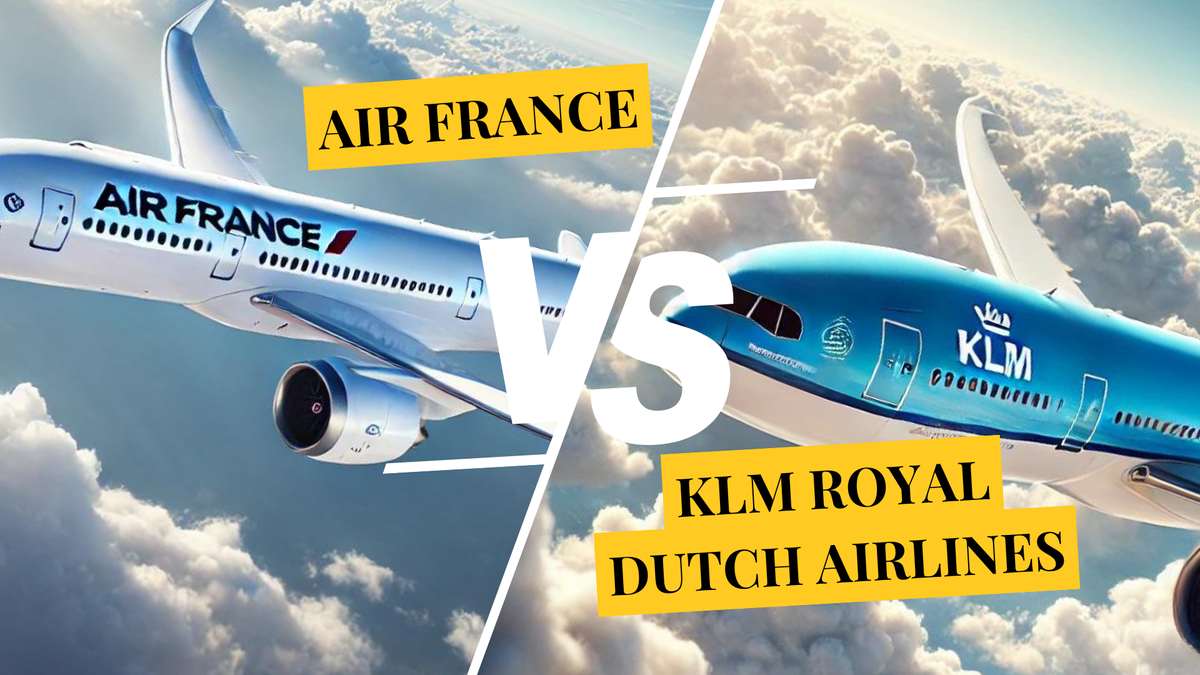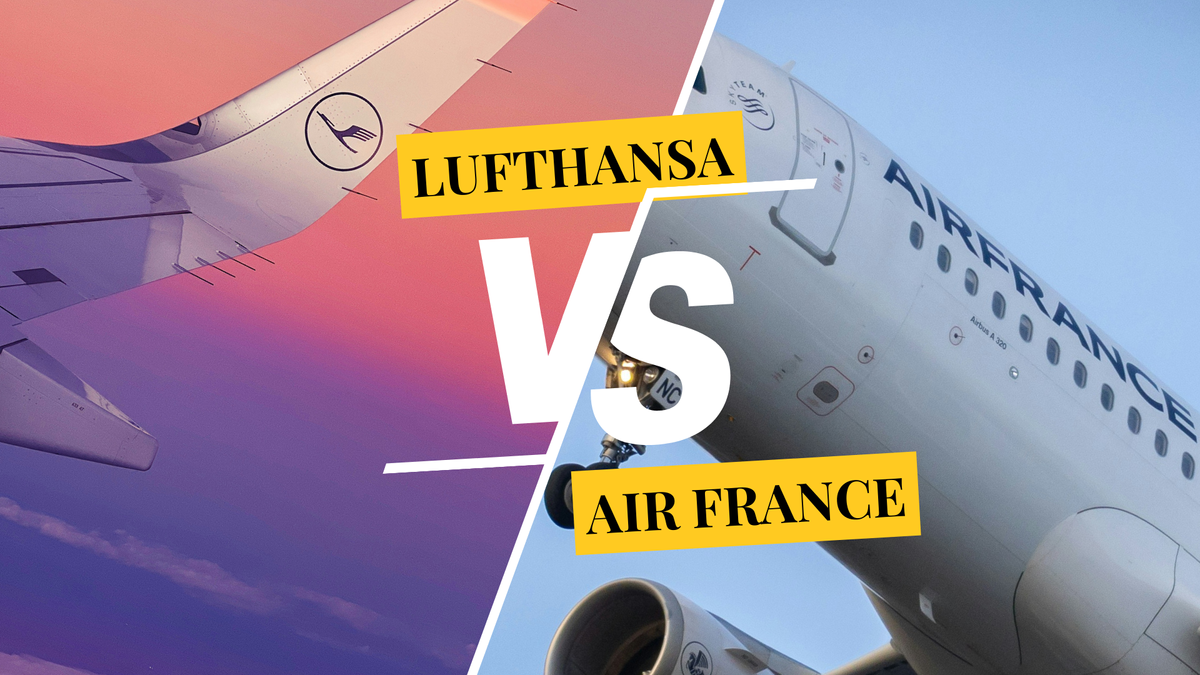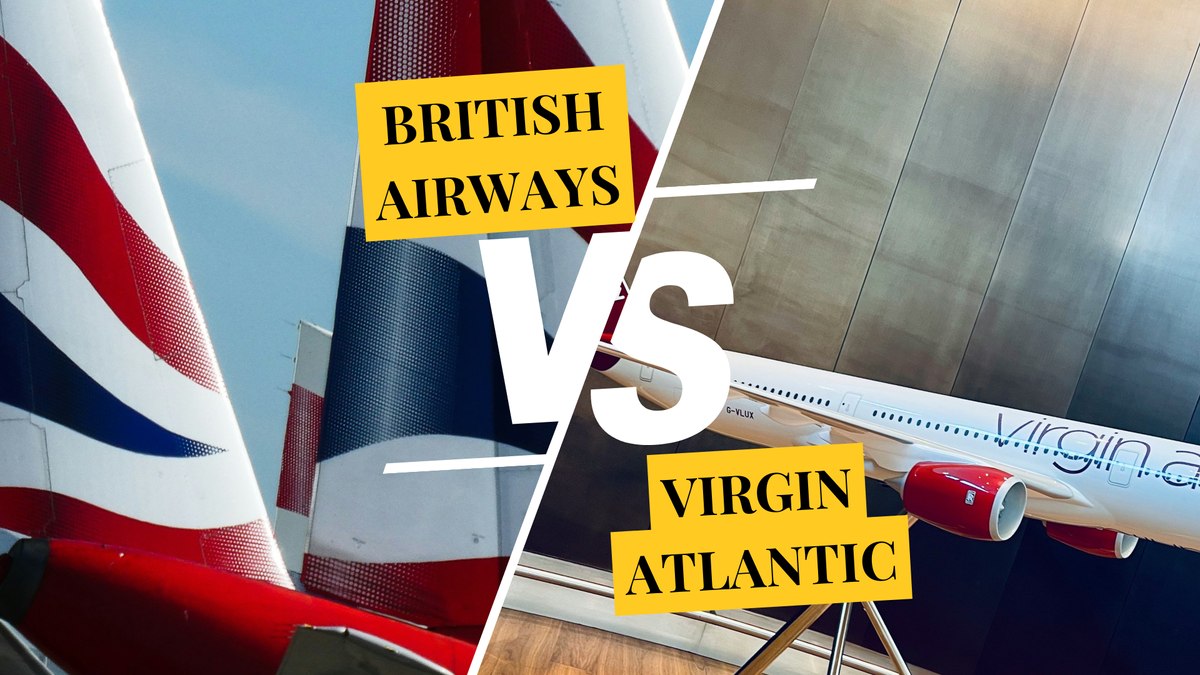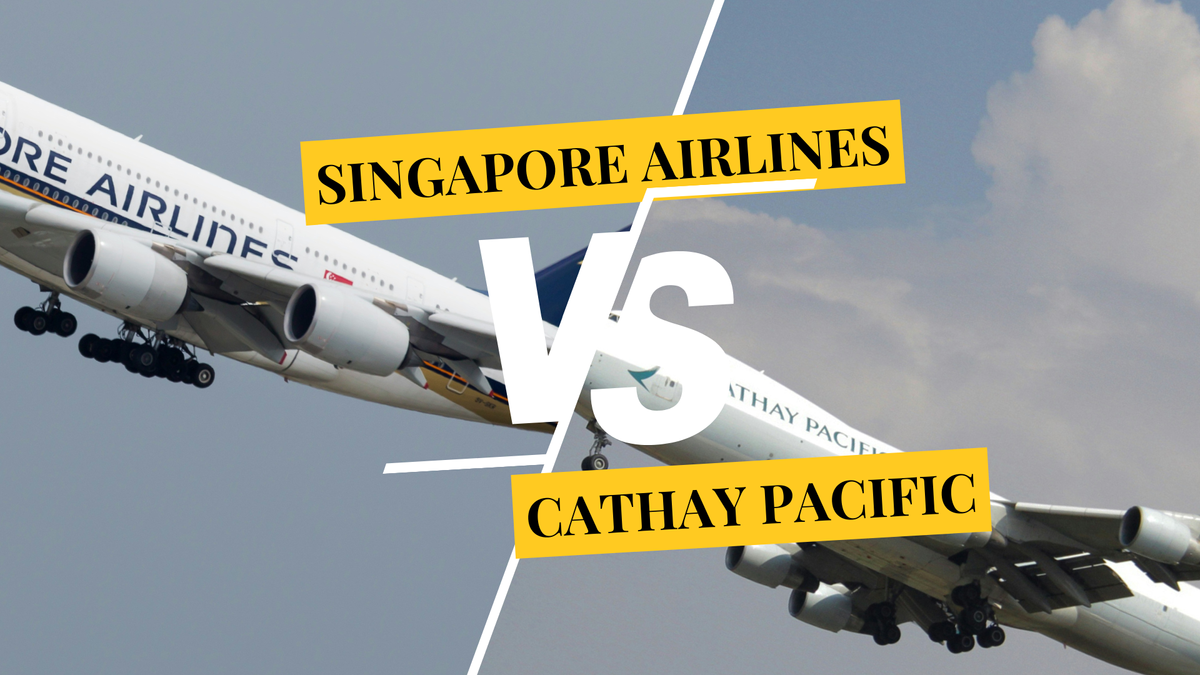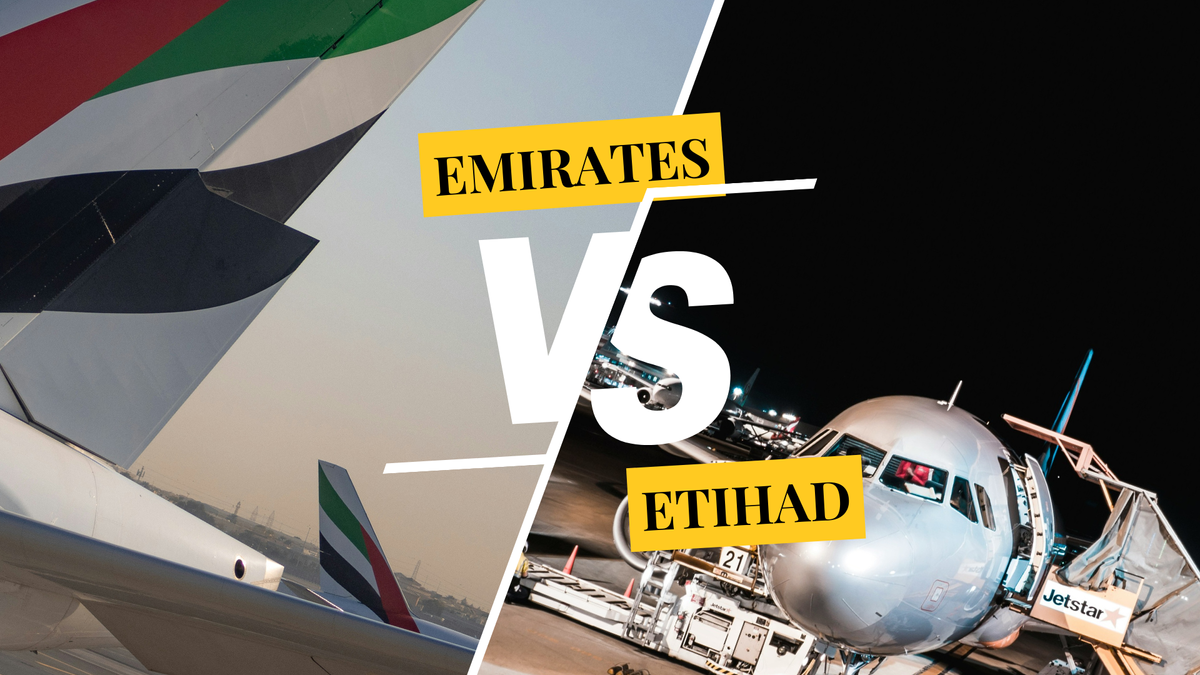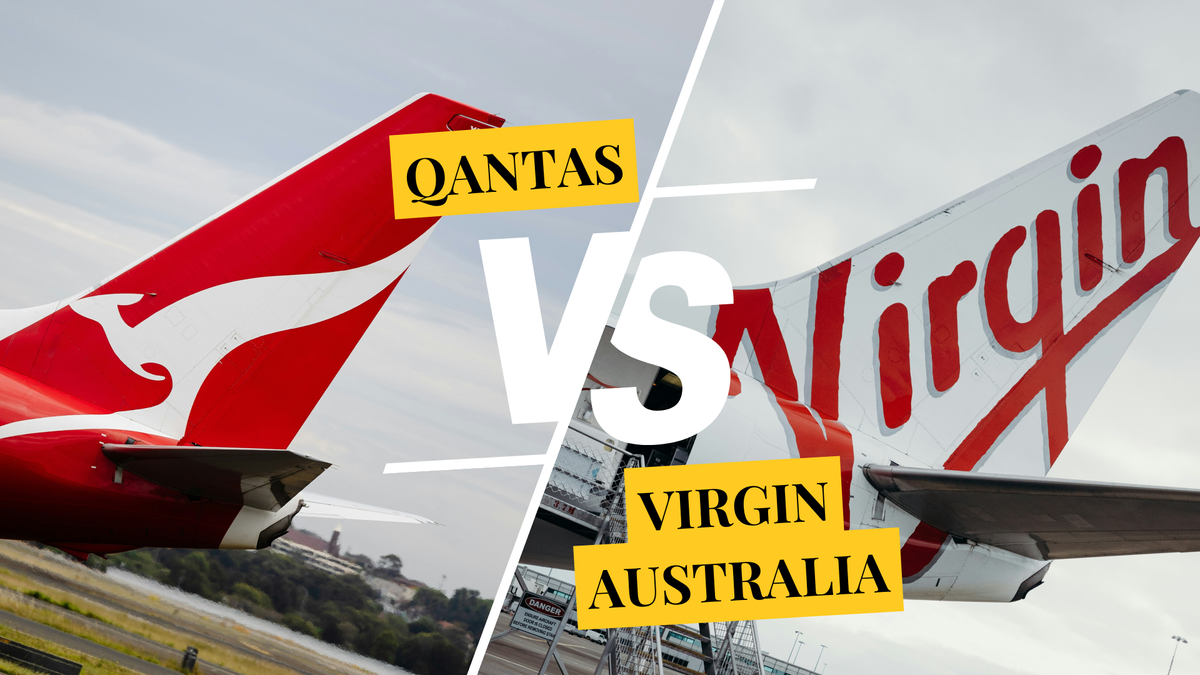The debate between Canada's two major airlines — Air Canada and WestJet — has been ongoing for years, with each airline boasting a loyal customer base and unique offerings.
While an increasing selection of budget airlines have popped up in Canada over the last decade, Air Canada and WestJet maintain significant market share for basic domestic and international routes to and from Canada.
This article will compare key aspects of these two major Canadian airlines, including their frequent flyer programs, airport lounge experiences, route networks, in-flight services, customer service, pricing, and overall value.
Whether you're a frequent flyer or planning your next trip, this comprehensive guide will help you make an informed decision.
Key Takeaways
- Air Canada offers a versatile points program through Aeroplan, which allows earning points on other Star Alliance airlines, while WestJet Rewards provides more tangible digital currency for future bookings.
- Air Canada's airport lounges are generally considered superior to WestJet's, offering more amenities and comfort.
- Both airlines have extensive domestic and international route networks, but Air Canada has a slight edge in international connectivity due to its Star Alliance membership.
- In terms of in-flight experience, Air Canada tends to offer better entertainment options, while WestJet excels in customer service.
- Pricing and value for money can vary; Air Canada often has higher ticket prices but offers more perks, whereas WestJet provides a more budget-friendly option.
Canadian Airline Loyalty Programs: WestJet Rewards vs Aeroplan
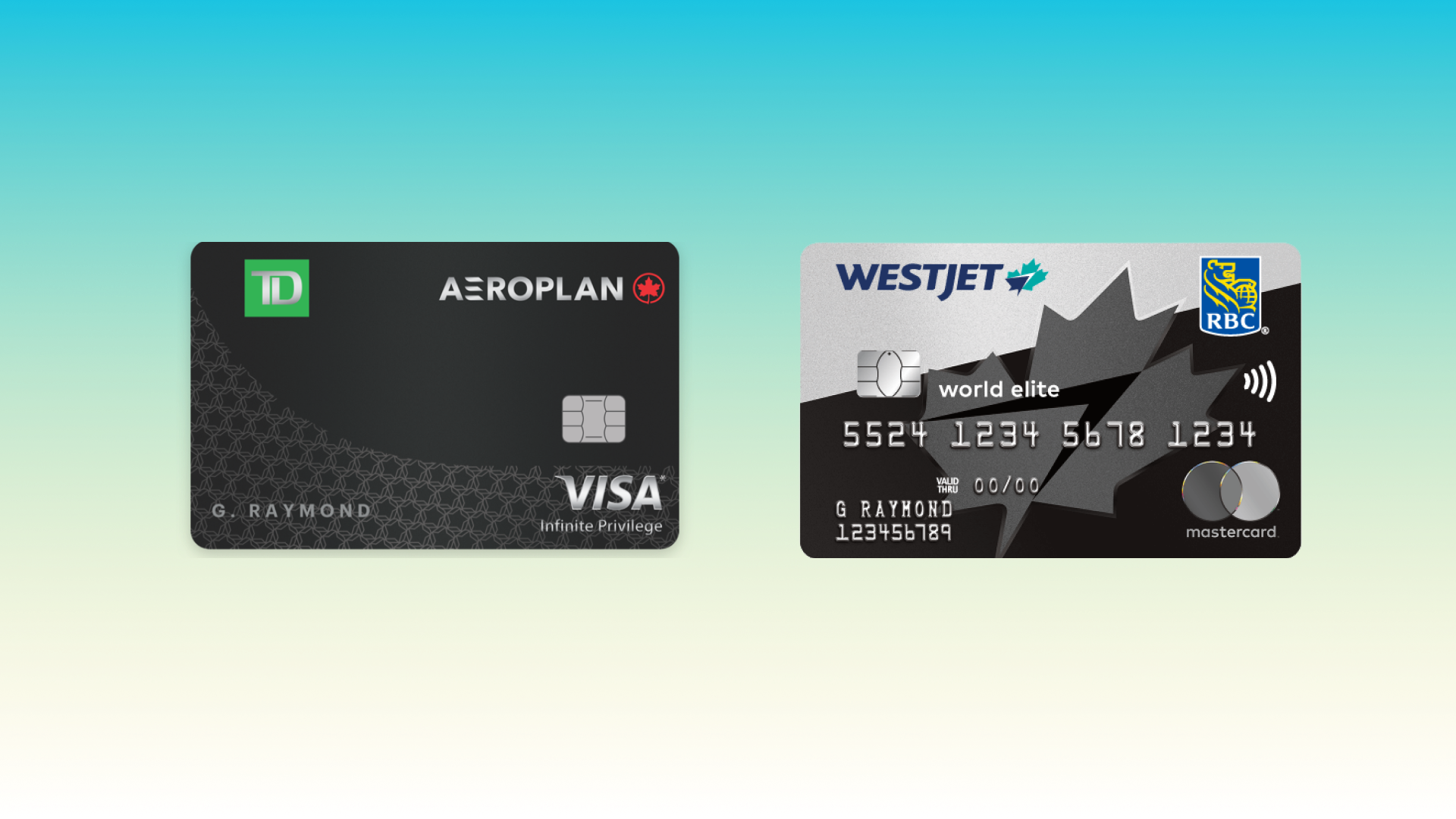
Canada's two major airline loyalty programs offer distinct approaches to rewarding frequent flyers. WestJet Rewards operates on a straightforward dollar-based system, where members earn WestJet dollars that directly translate to Canadian currency for future travel. This transparent approach makes it easy for members to understand and calculate the value of their rewards.
Aeroplan, Air Canada's loyalty program, takes a more traditional points-based approach but offers extensive global reach through the Star Alliance network. While more complex, it provides opportunities for particularly high-value redemptions, especially for international and premium cabin travel.
Both programs have undergone significant modernization in recent years, introducing enhanced family-friendly features, improved elite benefits, and greater flexibility in how members can earn and use their rewards.
Detailed Program Comparison
| Feature | WestJet Rewards | Air Canada Aeroplan |
|---|---|---|
| Basic Earning Structure | • 0.5-8% back in WestJet dollars • Value tied directly to CAD • Earning rate varies by tier |
• Points-based system • Dynamic earning based on fare and distance • 25-100% bonus points for status members |
| Elite Tiers | • Teal (Basic) • Silver ($3,000 spend) • Gold ($5,000 spend) • Platinum ($8,000 spend) |
• Basic • 25K (25,000 miles/25 segments) • 35K (35,000 miles/35 segments) • 50K (50,000 miles/50 segments) • 75K (75,000 miles/75 segments) • Super Elite 100K (100,000 miles/100 segments) |
| Top Tier Benefits | • 8% earning rate • Unlimited lounge access • Priority security screening • First boarding • Free flight changes • Four checked bags |
• 100% bonus points • Global lounge access • Concierge service • Priority rewards • VIP airport handling • Priority baggage handling |
| Network Coverage | • WestJet flights • Select partner airlines • Focus on North America |
• Air Canada flights • 45+ Star Alliance partners • 1,300+ global destinations |
| Redemption Options | • Flights (no blackout dates) • Vacation packages • Member exclusive fares • Simple 1:1 value conversion |
• Flights (market and fixed price) • Hotels and car rentals • Merchandise and gift cards • Experiences and events • Points + Cash options |
| Family Features | • Household point pooling • Companion vouchers • Family seating benefits |
• Family points sharing • Status pass sharing • Family booking benefits |
| Credit Card Integration | • Primary partnership with RBC • Annual companion vouchers • Lounge passes |
• Partnerships with TD, CIBC, AMEX • Multiple card options • Sign-up bonuses • Status qualification boosts |
| Key Advantages | • Simple to understand • Predictable value • No blackout dates • Lower tier thresholds |
• Global coverage • Multiple earning opportunities • Premium cabin sweet spots • Extensive partner network |
| Point Expiration | • Never expire | • 18 months without activity |
| Sweet Spots | • Domestic flights • North American travel • Last-minute bookings • Family travel |
• International business/first class • Partner airline awards • Long-haul flights • Multi-city itineraries |
Strategic Considerations
When choosing between these programs, consider:
- Travel Patterns: WestJet Rewards typically offers better value for North American travel, while Aeroplan excels for international journeys.
- Earning Potential: Evaluate your typical spending and travel patterns against each program's earning structure and partner network.
- Redemption Goals: Consider whether you prioritize simplicity (WestJet) or maximize value through complex bookings (Aeroplan).
- Elite Status: Assess which program's elite benefits better match your travel needs and whether you can meet qualification requirements.
Many frequent travelers in Canada find value in maintaining some level of participation in both programs, using each for its strengths while maximizing credit card and partner earning opportunities.
Pros and Cons of Each Program
- WestJet Rewards Pros:
- Simple earning and redemption structure
- No blackout dates for redemptions
- Higher tiers offer valuable perks
- WestJet Rewards Cons:
- Limited to WestJet and partner airlines
- Fewer redemption options compared to Aeroplan
- Aeroplan Pros:
- Earn points on everyday purchases
- Wide range of redemption options
- Strong network of airline and non-airline partners
- Aeroplan Cons:
- More complex earning and redemption structure
- Some rewards may have blackout dates
While there are merits to both loyalty programs, Aeroplan seems to be the better of the two. Even if you don’t travel much, the ability to earn base and bonus points on everyday purchases puts Aeroplan on top. Whichever program you use, both companies offer a range of benefits that are worth considering, particularly if you are a frequent flyer.
Earning Points or Dollars
Both Air Canada and WestJet offer competitive loyalty programs designed to reward frequent flyers. Air Canada's Aeroplan program allows members to earn points not only on flights but also through everyday purchases like groceries and dining.
WestJet Rewards, on the other hand, focuses on earning WestJet dollars, which can be redeemed for flights and vacation packages.
Redeeming Points or Dollars
Redeeming points in Aeroplan can be done for flights, hotel stays, and even car rentals. The program also allows for point transfers to over 15 travel loyalty programs, providing flexibility.
WestJet Rewards offers straightforward redemption options, primarily focusing on flights and vacation packages, making it simpler but less versatile.
Making Your Choice
The best program for you will depend heavily on your travel patterns, spending habits, and rewards preferences:
Choose WestJet Rewards if you:
- Primarily travel within North America
- Value simplicity in earning and redemption
- Want predictable reward values
- Frequently travel with family and can benefit from companion vouchers
- Prefer no blackout dates and straightforward redemptions
Choose Aeroplan if you:
- Travel internationally, especially in premium cabins
- Want to earn points through diverse spending categories
- Value flexibility in redemption options
- Can benefit from the extensive Star Alliance network
- Enjoy maximizing point value through strategic redemptions
Consider Both Programs If You:
- Travel frequently within Canada and internationally
- Can maintain qualifying spend/miles for status in both programs
- Hold credit cards from multiple banks
- Want to maximize benefits for different types of trips
Remember that both programs offer unique strengths, and your optimal strategy may involve using each program for what it does best. WestJet Rewards excels in simplicity and predictability, while Aeroplan offers more complexity but potentially higher value for certain redemptions. Consider starting with the program that best matches your most common travel patterns, then potentially expanding to include the other as your travel needs evolve.
Airport Lounges Experience
Air Canada Lounges

Air Canada’s award-winning Maple Leaf Lounges are available in 16 airports across Canada, the U.S., and Europe. Eligible guests will enjoy complimentary light meals and drinks, WiFi, showers, newspapers, entertainment, office areas, and a cell-free, quiet zone.
The lounges are reserved for Air Canada and Star Alliance departing passengers, Star Alliance Gold members, Maple Leaf Club members, and other membership holders and business class passengers.
WestJet Lounges
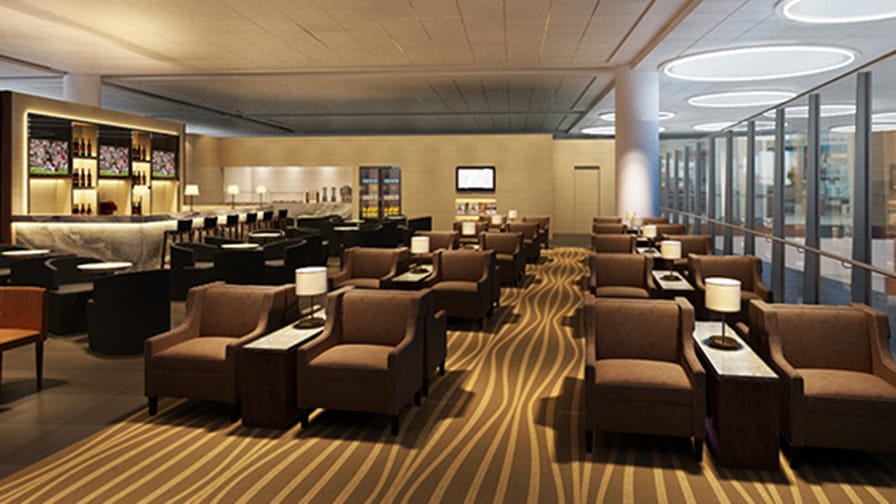
WestJet offers access to a variety of partner lounges worldwide, including the luxurious Amex Centurion Lounges, Priority Pass lounges, and Plaza Premium Lounges.
WestJet Rewards members with Gold or Platinum status, as well as Business Class passengers, can enjoy these lounges. Amenities typically include complimentary snacks and beverages, WiFi, comfortable seating, and workspaces.
Comparative Analysis
| Feature | Air Canada Maple Leaf Lounges | WestJet Partner Lounges |
|---|---|---|
| Locations | 16 airports | Various worldwide locations |
| Access | Star Alliance Gold, Business Class, Maple Leaf Club | Gold/Platinum Rewards, Business Class |
| Amenities | Light meals, drinks, WiFi, showers, newspapers, entertainment, office areas, quiet zone | Snacks, beverages, WiFi, seating, workspaces |
Air Canada’s Maple Leaf Lounges offer a more consistent experience across their locations, while WestJet’s partner lounges provide a variety of options depending on the airport.
Route Networks and Connectivity
Domestic Routes
Air Canada and WestJet both offer extensive domestic route networks, but Air Canada has a slight edge with more hubs and destinations.
Air Canada's primary hubs are Toronto, Montreal, Calgary, and Vancouver, serving over 60 locations within Canada. WestJet, on the other hand, primarily operates out of Calgary, Toronto, and Vancouver, covering around 40 domestic destinations.
International Routes
When it comes to international routes, Air Canada is the clear winner. The airline serves 64 countries and over 150 locations outside of Canada.
WestJet has been expanding its international reach but still lags behind, serving fewer countries and destinations.
Flight Connectivity
Air Canada's membership in the Star Alliance network significantly enhances its flight connectivity, offering seamless travel options across multiple airlines. WestJet has codeshare agreements and partnerships with several international airlines, but its connectivity is not as extensive as Air Canada's.
For travelers prioritizing extensive route networks and global connectivity, Air Canada is generally the better choice.
In-Flight Experience
Seating and Comfort
Travelling by air is an experience like no other, and Air Canada and WestJet both offer a range of services and amenities to make your flight as comfortable and enjoyable as possible.
Seating comfort is a crucial aspect of the in-flight experience. Both airlines provide various seating options, from economy to premium classes, ensuring that passengers can choose according to their comfort and budget.
In-Flight Entertainment
Both companies seem equally equipped when it comes to entertainment options. Passengers can enjoy in-flight Wi-Fi services on select North American and International flights.
Additionally, content can be streamed directly to personal devices via web browser, allowing passengers to stay connected and entertained throughout their journey.
Food and Beverage Service
Both airlines offer complimentary food on longer flights and in premium seats. On shorter flights, passengers have the option to purchase food.
WestJet's in-flight food service typically starts about 30 minutes after departure, with a complimentary beverage service following shortly after. Air Canada offers a similar service, ensuring that passengers have access to a variety of food and beverage options during their flight.
Both Air Canada and WestJet strive to provide a pleasant in-flight experience, focusing on comfort, entertainment, and quality food and beverage services.
Customer Service and Reviews
Customer Service Quality
When it comes to customer service, WestJet offers more options for methods of contact, including phone, email, and social media. Air Canada also has a dedicated customer service team, particularly for its business and premium customers, with phone numbers and email options.
However, both airlines have mixed reviews regarding their customer service quality.
Online Reviews
Online reviews for Air Canada are mixed, with the Better Business Bureau noting a high volume of complaints due to flight delays, cancellations, and staffing shortages.
Air Canada's overall rating is 1.06/5 stars. WestJet's rating is slightly better at 1.17/5 stars, but still not impressive.
| Airline | BBB Rating |
|---|---|
| Air Canada | 1.06/5 |
| WestJet | 1.17/5 |
On-the-Ground Experience
Both airlines offer various customer support services at the airport, including self-service kiosks and priority services for premium customers. However, the on-the-ground experience can vary significantly depending on the airport and the specific circumstances of the flight.
While both airlines strive to offer excellent customer service, the reality often falls short of expectations, as evidenced by their low ratings and mixed reviews.
Pricing and Value for Money
Ticket Pricing
When comparing ticket pricing between Air Canada and WestJet, it's essential to consider various factors such as demand, season, and booking time.
WestJet often offers more budget-friendly options, especially for economy class travelers. However, Air Canada provides a broader range of fare classes, which can be beneficial for those seeking more flexibility or premium services.
Additional Fees
Both airlines have additional fees that can impact the overall cost of your trip. These may include charges for checked baggage, seat selection, and in-flight services.
Here's a quick comparison:
| Fee Type | Air Canada | WestJet |
|---|---|---|
| Checked Baggage | $30-$50 | $30-$50 |
| Seat Selection | $10-$50 | $10-$40 |
| In-Flight Wi-Fi | $5-$21 | $5-$21 |
Overall Value
While the cheapest fare isn't always the best deal, it's crucial to weigh the overall value. Air Canada offers a more comprehensive service package, including better in-flight entertainment and more extensive route networks.
On the other hand, WestJet's no-frills approach can be more cost-effective for budget-conscious travelers.
Ultimately, the best choice depends on your specific needs and travel preferences. Consider what aspects of the travel experience are most important to you when making your decision.
Deciding between Air Canada and WestJet
In deciding between Air Canada and WestJet, the choice ultimately comes down to individual preferences and priorities. Both airlines offer unique advantages and cater to different types of travelers.
Air Canada stands out with its extensive route network, superior frequent flyer program, and strong alliance partnerships, making it an excellent choice for frequent and business travelers.
On the other hand, WestJet's straightforward rewards system, competitive pricing, and customer-friendly service make it a compelling option for leisure travelers and those looking for value.
While both airlines have their pros and cons, the best way to determine which one suits your needs is to experience them firsthand.
Whether you prioritize points, perks, or price, both Air Canada and WestJet have something to offer, ensuring a pleasant journey no matter which you choose.
Frequently Asked Questions
Which frequent flyer program is better for business travelers?
Air Canada's Aeroplan program is generally better for business travelers due to its flexibility and the ability to earn points by flying on other airlines in the Star Alliance network.
Do WestJet Rewards have black-out periods?
No, WestJet Rewards do not have black-out periods, allowing for more flexibility when redeeming rewards.
Can Aeroplan points be used with other loyalty programs?
Yes, Aeroplan points can be converted and used with various other loyalty programs, including those of Indigo, Amazon, Apple, and Hudson’s Bay Company.
What are the main differences between Air Canada and WestJet lounges?
Air Canada lounges are generally more extensive and offer a wider range of amenities compared to WestJet lounges. However, the choice may depend on personal preferences and specific needs.
How do the in-flight experiences of Air Canada and WestJet compare?
Both airlines offer a good in-flight experience, but they differ in seating comfort, in-flight entertainment, and food and beverage services. Personal preferences will play a significant role in determining which is better for you.
Which airline offers better customer service according to reviews?
Both Air Canada and WestJet have their strengths in customer service, but neither excels in online reviews. It's recommended to weigh the pros and cons and consider personal experiences when making a decision.
Compare more airlines
